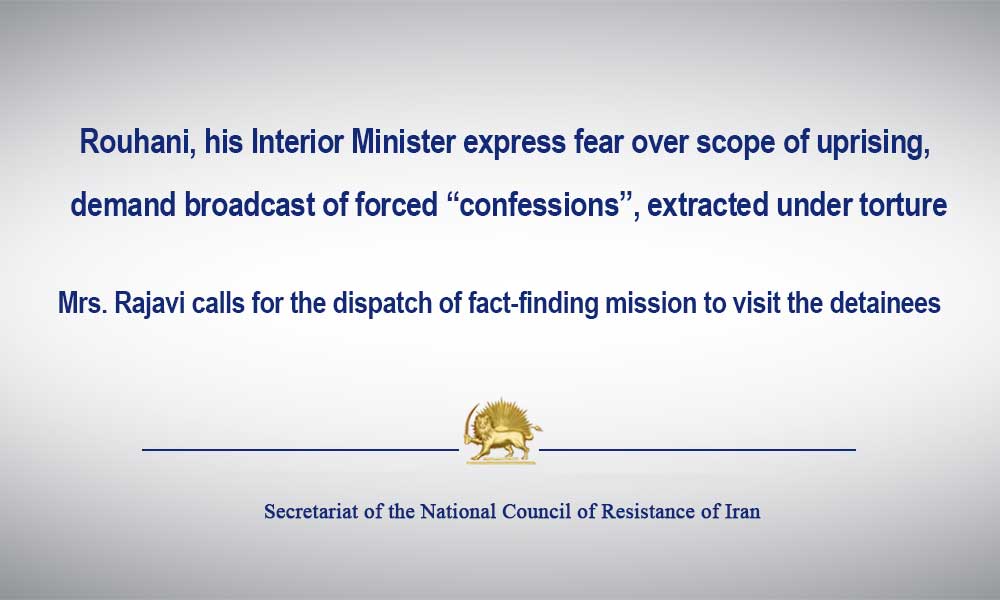Rouhani, his Interior Minister express fear over scope of uprising, demand broadcast of forced “confessions”, extracted under torture

As the Iranian regime’s leaders express their fear over the scope of the nationwide uprising one after the other, Hassan Rouhani and his Interior Minister ordered the broadcast of forced “confessions” by those arrested. Using torture to extract confessions and forcing those detained to take part in television interviews are routine practices under the mullahs’ rule. These practices are egregious violations of human rights and must be condemned by the international community.
Yesterday, November 27, Regime’s Supreme Leader Ali Khamenei described the uprising as “a deep, vast, and dangerous conspiracy” in which “the enemies had invested heavily to plan.” Simultaneously, Rouhani said, “The enemy trains, sends money and equipment… Those detained must come and explain to the people. Here, I instruct the Intelligence and Interior ministries that those arrested on the scene, those leading [the protests] from their homes, those who had stockpiled lots of weapons in their homes, those who were members of teams, must come and tell people about all of it.”
On Novembers 26, the Interior Minister Abdolreza Rahmani Fazli said in a television interview, “We were engulfed in more serious crisis in five provinces. Most damage was inflicted in Mallard, Baharestan, Quds and Islamshahr… On Saturday, incidents and clashes erupted in 100 locations in Tehran… More than 50 law-enforcement, military, and security bases were attacked. Some 500 were moving on the state radio and television. But our forces thwarted them.” Fazli emphasized, “Now that the key people are being arrested, some of their contacts with foreign elements have been monitored and their confessions must be broadcast on television.”
Earlier, Brig. Gen. Salar Abnoush, the paramilitary Bassij operations commander, had said, “Strange and complex coordination had taken place. They were only waiting for spark to destroy the country. Further information will be provided after the confessions.” On November 25, Intelligence Ministry (MOIS) and State Security Force (SSF) representatives attended a closed-door session of the Majlis (Parliament) National Security and Foreign Policy Committee. The Committee’s spokesman, Hossein Naqavi, quoted MOIS representatives as saying, “In the past two years, the MEK had trained different groups and circles, and directed them in the protests. These will not be the final incidents and we may be witness to similar ones.” In the same meeting, the SSF representative Hossein Sajedinia said that his Force had controlled the situation with the “help of the IRGC, the Bassij and the Army.”
Since the start of the uprising, Mrs. Maryam Rajavi, the President-elect of the National Council of Resistance of Iran (NCRI), has called on the United Nations Security Council and member states, the European Union, and all human rights bodies to take urgent action to stop mass killings and arrests, asking the UN to dispatch fact-finding missions to visit those arrested. Because many of those detained face torture, forced confessions and executions, the dispatch of such missions are even more imperative.
Secretariat of the National Council of Resistance of Iran
November 28, 2019
- Tags: Iran protests, MEK

